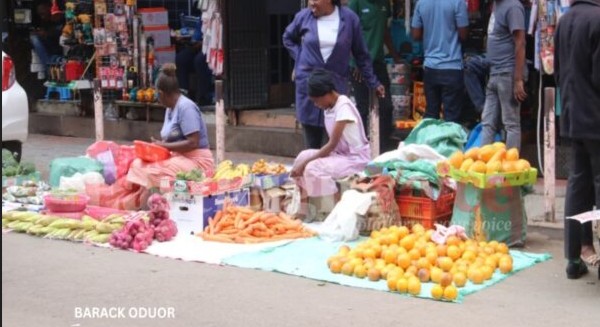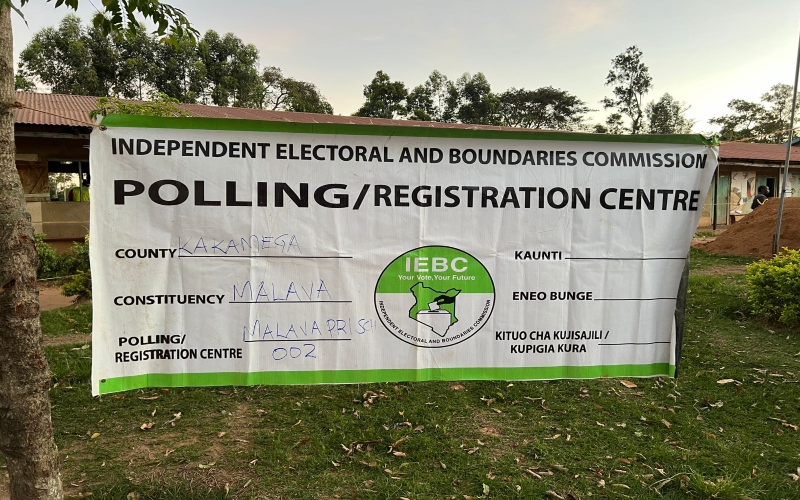Proposed law seeks to protect street hawkers from harassment and regulate trade

If passed into law, the Bill will help county governments manage street vendors and hawkers, who have long protested against harassment and other unfavourable regulations.
Street vendors and hawkers in Kenya may soon operate under laws that regulate their trade and set minimum operational standards.
On Tuesday, Members of Parliament were presented with the Street Vendors (Protection of Livelihood) Bill, 2023.
More To Read
- Ethiopian quarter: How migrants have shaped a thriving shopping district in South Africa’s city of gold
- How Nairobi’s women hawkers risk it all to make ends meet
- Nairobi Chief Officer Geoffrey Mosiria leads crackdown on illegal dumping, hawkers in Eastleigh
- Eastleigh mall owners protest return of hawkers, call for county action
- City Hall to arrest hawkers, customers for selling and buying goods in undesignated areas
- Eastleigh hawkers suffer losses as heavy rains halt trade for third straight day
According to the National Assembly, if passed into law, the Bill will help county governments manage street vendors and hawkers, who have long protested against harassment and other unfavourable regulations.
"The Bill seeks to provide a legal framework for the recognition, protection and regulation of street vending in Kenya, the identification of minimum standards for street vending," noted a notice from the National Assembly.
The Bill signals potential relief for street vendors, providing legal recognition and structures at both county and national levels to decriminalise hawking through formal dispute resolution mechanisms.
The draft legislation comes amid complaints from residents about hawkers crowding central business districts (CBDs). Once enacted, hawkers will have rights to adequate facilities and compensation for any damage to their property.
Welcomed Bill
Hawkers who spoke to The Eastleigh Voice welcomed the Bill, noting that legal recognition could protect them from constant harassment.
Michael Ondari, who sells second-hand shoes along Luthuli Street, said most hawkers have not read the Bill but believe it will benefit them.
"To say the truth, most of us haven't read the Bill, but we've heard that it's championing our welfare. It will be a victory if it protects us from constant harassment by authorities," Ondari said.
Ondari and other hawkers believe the law will regulate the sector and foster a harmonious working relationship with county governments.
The Bill is aimed at safeguarding the livelihoods of itinerant traders, particularly as some county governments seek to drive them out of towns.
Under the proposed legislation, each county government must develop a street vending zone plan and submit it to the county assembly for approval. Trade executives will oversee the registration of licensed vendors and manage the renewal of vending licenses.
County governments may also refuse to renew or temporarily suspend a license for up to 12 months if a vendor breaches any provisions of the law.
Sponsored by Nominated Senator Esther Okenyuri, the Bill will include data on all street vendors and identify potential areas where they can operate.
Counties will subdivide areas into three categories: restriction-free vending zones, restricted vending zones, and no-vending zones.
Special permit
Hawkers operating in restricted or no-vending zones without a special permit will face six months in jail, a fine of up to Sh10,000, or both.
The proposed law also allows county governments to restrict or revoke a hawker’s license if they violate the law or hinder national or county policies. The Trade County Executive Committee (CEC) must issue a notice explaining the reasons for revocation.
If a hawker fails to relocate to the designated area after the notice period, they will incur a fine of Ksh10,000 for each day of non-compliance.
The Bill requires county governments to select vending zones based on four factors: the recommended locations in the county vending plan, the number of street vendors already allocated in the area, the need to protect existing businesses, and existing county physical plans.
Before constructing vending centres, the Bill proposes that counties provide solid waste disposal plans, security, lighting, and parking services where necessary.
Top Stories Today















































